Madagascar is an exotic country with a high concentration of endemic species, making it a jewel in terms of biodiversity. It is the world’s fourth largest island and its cultural richness differs from one ethnic group to another, with 18 ethnic groups forming the Malagasy population. Malagasy society remains open-hearted to everyone who takes time to discover and enjoy its natural and cultural heritage. This land of smiles and contrasts is ready to take you on your next adventure whether helping out in local communities or just exploring. This island located at the crossroads of the African and Asian worlds will surely amaze your senses. Madagascar will certainly shift the way you see the world.
Overview of Volunteer Programs in Madagascar
WHY VOLUNTEER IN MADAGASCAR
Volunteering in Madagascar offers a rare chance to be part of a vital conservation effort in one of the world’s most ecologically diverse and fragile environments. By dedicating your time to volunteer work here, you’ll directly contribute to safeguarding unique flora and fauna, such as lemurs and chameleons, while promoting sustainable practices that benefit local communities. This hands-on involvement in conservation projects allows you to witness the direct impact of your efforts and become a steward of Madagascar’s unparalleled natural heritage.
Beyond the rewarding conservation work, you’ll find yourself immersed in the rich tapestry of Malagasy culture, where traditional beliefs and customs intertwine with a warm and welcoming spirit. Exploring Madagascar’s remote villages, vibrant markets, and breathtaking landscapes will provide you with a deeper appreciation for the intricate relationship between people and nature. Volunteering in Madagascar ombines meaningful impact with immersive cultural experiences.
HIGHLIGHTS OF VOLUNTEERING IN MADAGASCAR
Here are just a few of the best things about volunteer work in Madagascar:
- Volunteering in Madagascar provides a rare opportunity to work in one of the world’s most biodiverse ecosystems, contributing to conservation efforts that protect unique species like lemurs and chameleons.
- Immerse yourself in Madagascar’s lush rainforests, discovering hidden waterfalls, rare plant species, and diverse wildlife, including the chance to spot lemurs in their natural habitat.
- Engage with local communities and learn about Malagasy customs, traditions, and beliefs, forging connections that provide deep insights into the island’s rich cultural heritage.
- Contribute to marine conservation initiatives, such as protecting coral reefs and marine life, while enjoying opportunities for snorkeling and diving in crystal-clear waters.
Our Madagascar Volunteer Projects
Browse all of our volunteer projects in Madagascar below. If you can’t find a suitable volunteer program, check out our main program finder to continue your search for volunteering beyond Madagascar.
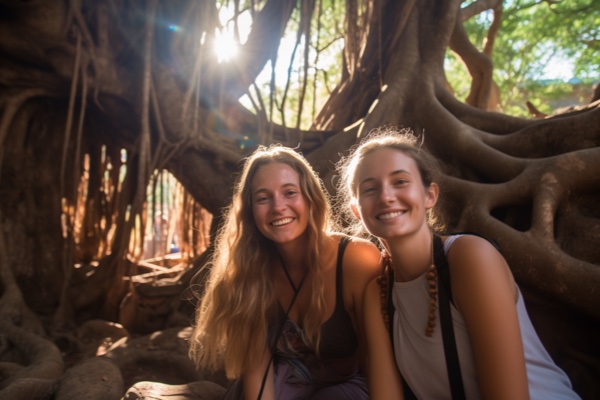
Nosy Be Culture Week Volunteer in Madagascar
Nosy Be Culture Week Volunteer in Madagascar
CULTURE WEEK SCHEDULE
– Monday: Orientation, meet the team and get to know your fellow volunteers, then hike to the summit of Nosy Be’s highest point, Mont Passot, for stunning sunset views
– Tuesday: Walking tour of Nosy Be’s lovely rural landscapes from Ambatozavary to the old village of Marodoka for a picnic, local dance class and pastry class, and Malagasy language lessons
– Wednesday: Visit the sacred banyan tree where locals and mainlanders make offerings and ask for blessings, walk through Hell-Ville – the largest city on Nosy Be – to visit the marketplace, discover the old town where the King lives, and view the colonial architecture
– Thursday: Traditional painting class with local
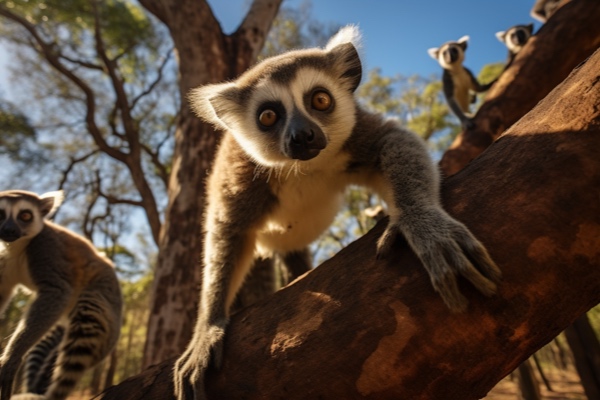
Lemurs Volunteer Project in Madagascar
Lemurs Volunteer Project in Madagascar
As a conservation participant, you will first learn about Madagascar’s flagship species especially the ones which are endemic to this part of Madagascar, with other representatives of unique fauna like the Madagascar fish-eagle and Ploughshare tortoise. Preparing the lemurs morning and afternoon feed along with cleaning their cages comprise daily project activities.
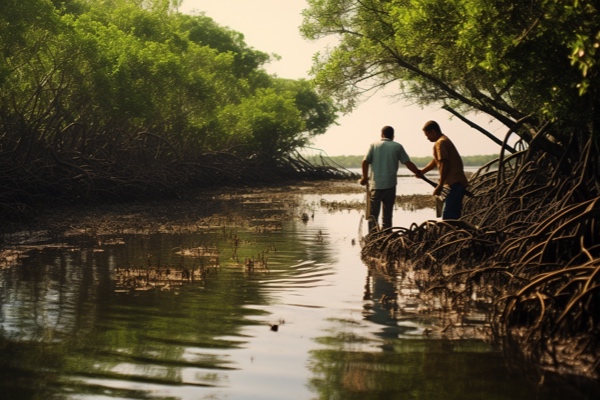
Mangrove Forest Conservation Volunteer in Madagascar
Mangrove Forest Conservation Volunteer in Madagascar
This site is bordered by a mangrove forest and consists of a center dedicated to train youth – from rural communities in Nosy Be and from the mainland about professional organic farming. As a conservation participant, you will first learn about the mangrove forest in Nosy Be, its richness, uses and threats. You will first work on designing an environmental teaching manual for children. After this you can begin our community environmental education outreach program, helping to highlight the importance of mangroves and their sustainability to the local communities and schools. You will work on mangrove forest seedbeds. Young plants will firstly be used to reforest a showcase site and living cl
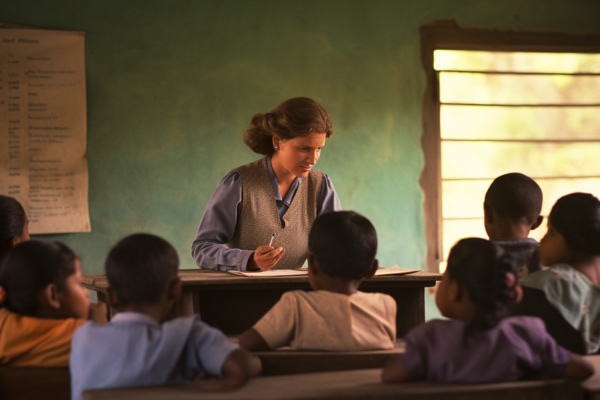
Teaching Volunteer Project in Madagascar
Teaching Volunteer Project in Madagascar
On the other hand, the local teachers can also learn new and up to date teaching methods and techniques from you. You will mainly assist the regular school teachers in the school and therefore even without a formal teaching background you can participate in this project.
You will teach children from different age groups with different learning capacities. You are free to use your own teaching materials and methods in teaching. You can use the course book as reference or educate children through conversation with spoken English. During your time here you can teach them different subjects such as mathematics, history, science, geography, computer, technologies, music, arts and crafts, differen
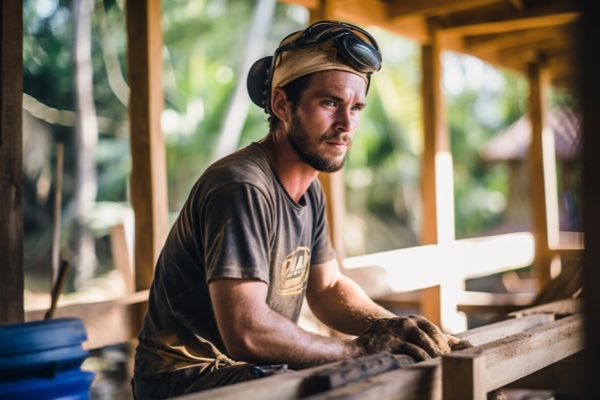
Construction and Renovation Volunteer in Madagascar
Construction and Renovation Volunteer in Madagascar
You will work under a local coordinator who will provide you guidance and training to work alongside the local families and other participants. The project involves hard physical and manual labor since you will be laying bricks, doing carpentry, painting, waterproofing, laying tiles, landscaping/gardening, as well as, improving the community’s hygiene and sanitation facilities.
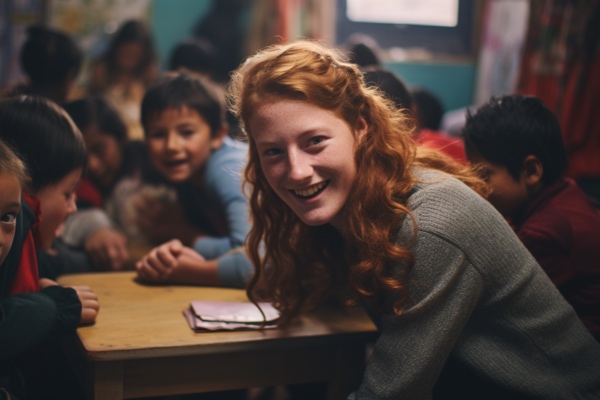
Kindergarten Teaching Volunteer in Madagascar
Kindergarten Teaching Volunteer in Madagascar
However, just by getting them enthused about coming to school, giving them some very basic English phrases such as simple greetings, you may as well have sown the seeds of a lifelong learning habit. The children will all be excited to see you and welcome you exceptionally, partly due to the natural and genuine friendliness of the people of these villages but also due to the fact that you will be one of the few foreigners they have ever met, up close!
Location
About Nosy Be
Nosy is an island off the northwest coast of Madagascar. Nosy Be means “big island” in the Malagasy language and is Madagascar’s largest and busiest tourist destination. Here you’ll find volcanic lakes, lemurs, rum distilleries, Ylang Ylang plantations and breathtaking coral reefs that are practically begging to be explored. Perfectly located on the Indian Ocean between Africa and Asia, Nosy-Be evokes feelings of discovery and adventure, the rich and endemic biodiversity will have you begging for more.
Dates & costs
The World Endeavors Volunteer in Madagascar program is flexible in duration and can be tailored to last between 1 to 12 weeks. If you have the time, we recommend a stay of at least 4 weeks. Admissions are rolling, and World Endeavors volunteers can choose when they would like to start their program. Due to holidays, traditional vacation schedules, and seasonal work availability, there might be better times than others to volunteer at a specific location or in a specific project.
When you are ready to start planning your volunteer trip to Madagascar contact us. Our experienced advisors will help you sort through any timing considerations unique to your destination or your volunteer project.
Please wait until after you are accepted into the program and you have received the confirmed arrival and departure dates before you book your flight.
Eligibility
- Volunteers must be 18 years of age or older, though exceptions to this age requirement may be made on a case-by-case basis.
- Successful volunteers are hardworking, flexible, and open to truly immersing themselves in the culture.
- Keep in mind that all countries have different visa restrictions for varying types of passports.
Housing
Volunteers stay in a shared volunteer house and stay in shared rooms by gender. The meals are a mix of Western and Malagasy food, consisting mainly of vegetarian dishes including rice and vegetables. You can expect to have a chicken dish about twice a week. You can also use the kitchen facilities to cook for yourself or eat out at any of the local restaurants at your own expense.
Every World Endeavors Volunteer Project Includes
Our carefully designed international volunteer programs encompass everything necessary for your success and well-being while abroad.
YOUR VOLUNTEER PROGRAM
- Volunteer project customized to match your interests and goals and meet community needs
- Year-round program availability
- Flexible durations from 2 to 12 weeks
PEACE OF MIND
- Comprehensive travel medical insurance
- Mental Health First Aid-certified staff
- 24/7 emergency travel assistance
ACCOMMODATION
- Host family or shared volunteer house, depending on destination
- Vetted and hand-selected with quality and safety in mind
- 2 to 3 meals per day included
PREPARATION AND SUPPORT
- Airport pickup
- Pre-arrival and on-site orientation
- 24/7 local support
TEAM OF EXPERTS
- Dedicated one-on-one advisor
- Local on-site coordinator
- Volunteer project supervisor
RE-ENTRY AND CAREER INTEGRATION
- Re-entry handbook and support
- Assistance with resume updates
- World Endeavors Alumni Network
HEALTH & SAFETY
When you feel safe and respected abroad, you will flourish. World Endeavors participants are transformed through enriching, rewarding and safe experiences around the world. We meticulously monitor travel recommendations and will only facilitate programs where we can ensure our participants’ safety.
We take key steps to ensure our participants’ well-being, including providing a pre-trip success guide, 24/7 local support, in-country trained staff, pre and post-arrival orientation, comprehensive travel medical insurance, and Mental Health First Aid-certified staff. Please contact us if you have any specific questions or concerns.
WHAT TO DO IN YOUR SPARE TIME IN MADAGASCAR
In your spare time in Madagascar, there are plenty of enjoyable activities and experiences to pursue. Here are some suggestions:
- Explore Nature & Wildlife: Visit national parks like Andasibe-Mantadia, Isalo, or Ranomafana to witness lemurs, chameleons, and other endemic species in their natural habitats.
- Experience Local Culture: Engage with the friendly Malagasy people, visit local markets, and attend traditional dance performances to immerse yourself in Madagascar’s rich heritage.
- Snorkel Along Coral Reefs: Madagascar’s coastal regions offer excellent opportunities for snorkeling or diving to explore the vibrant coral reefs and marine life.
- Try Malagasy Cuisine: Sample traditional Malagasy dishes like romazava (beef stew), ravitoto (cassava leaves with meat), and zebu steak, along with tropical fruits like lychee and mango.
Available Volunteer Project types
Here are the available Volunteer Abroad project types. Don’t panic if you don’t see your preferred project type listed! Our advisors are proud of their ability to find great volunteer projects in interesting locations and will be able to match you to the best project. Contact World Endeavors today to find out more.
How to choose the best volunteer program
Choosing your volunteer program is easy when you evaluate your priorities. Follow these steps to guide you toward your ideal program.
Explore a New Career
Interning abroad offers a great opportunity to explore your professional and personal interests, and help define your career path. Peruse our internship fields and past examples to find the best fit.
Choose Your Dream Destination
Finding a meaningful way to combine interning and travel to your dream location is a big incentive. Carefully consider which destinations suit your interests and international internship goals.
Improve Language Skills
Immersing yourself in a language-rich environment is the ultimate method for developing fluency. If language-learning is your goal, favor destinations that use your language of choice.
Fit your budget
Explore scholarships and financial aid to determine if these may impact your destination options. Consider the overall cost of the program and cost of living in-country to identify the optimal match.
Try our program finder to filter based on your choices.
Recent Volunteer Abroad Testimonials
Volunteering in Madagascar FAQs
Can I volunteer in Madagascar?
Yes, anyone who qualifies for the program is welcome to volunteer in Madagascar through World Endeavors. Opportunities are available year-round with flexible start dates and durations, making participation accessible for different schedules. Requirements may vary depending on the program, and it is important to secure the appropriate visa and travel documents before departure.
What are the volunteer opportunities in Madagascar?
Volunteer opportunities in Madagascar include working with lemurs through conservation projects, participating in mangrove forest conservation, teaching in kindergartens, and joining cultural programs such as the “Culture Week” where volunteers learn local traditions and language, explore rural landscapes, and engage with community life. All programs are based in Nosy Be, an island in northwest Madagascar.
Do I need a visa to volunteer in Madagascar?
A visa is sometimes needed to enter Madagascar. Visitors may obtain a tourist visa or e-visa depending on country of origin, often for stays up to 90 days. A passport valid for at least six months beyond the date of entry and proof of onward travel are typical requirements. It is recommended to check with the nearest Malagasy embassy or consulate for current visa regulations.
If you have questions about the process, feel free to contact us and our team will be happy to guide you through the steps.
Is Madagascar safe for volunteers?
Madagascar is generally safe for volunteers, especially with support from the local coordinators provided through World Endeavors. Standard precautions should be taken: avoid isolated areas at night, follow travel advisories, stay aware of local conditions, obtain required vaccinations, and ensure proper health travel insurance.
What to pack for volunteering in Madagascar?
Light, breathable clothing is essential, along with modest dress options for cultural areas. Long sleeves and insect repellent are useful for evening/time in nature. A sturdy pair of walking shoes and sandals are recommended. Must-bring items include passport, visa documentation, vaccination records (Yellow Fever if applicable), travel insurance information, personal toiletries, sunscreen, hat, reusable water bottle, and a small first-aid kit. Also, be ready for tropical weather and bring items for both sun and occasional rain.
Recent blog posts
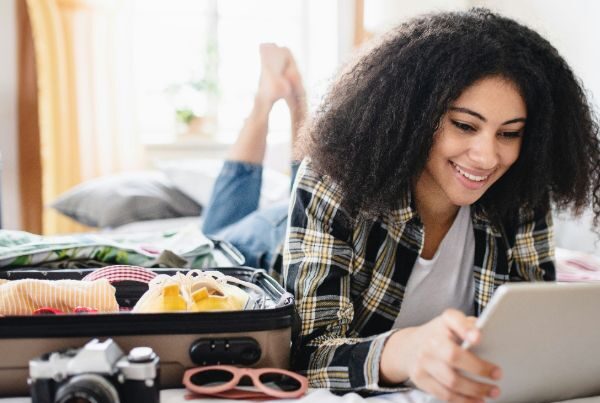
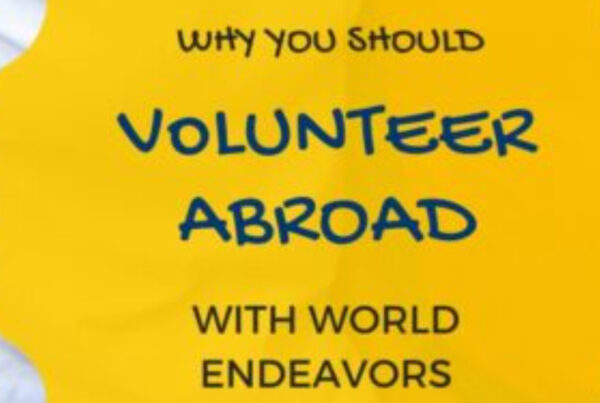
Why You Should Volunteer Abroad with World Endeavors
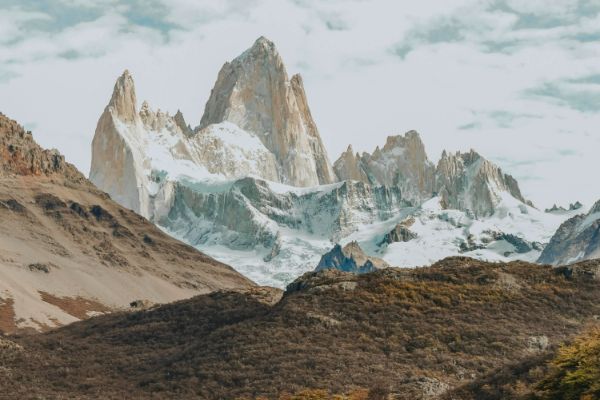
New Program: Intern and Volunteer in Argentina
Our Top Volunteer Abroad Destinations
World Endeavors volunteers support communities in several destinations in Africa, the Americas, Asia and Oceania. Our programs are located in a variety of sites, including urban and rural, economically developed and developing, and English-speaking and non-English speaking.
How to apply for a Volunteer Abroad Program
You’ve decided to volunteer abroad – congratulations! Applying for your World Endeavors program is easy and stress-free. We can’t wait to get you on your way!
STEP 1
EXPLORE & ASK
Research and compare. If you can’t decide on a program, we can guide you toward the best fit.
STEP 2
SUBMIT YOUR APPLICATION
Fill out our online application form to share all your relevant details with our team.
STEP 3
ENROLL & PREPARE
Receive your official acceptance and enroll. We’ll give you all the info you need to get ready!
STEP 4
START YOUR ADVENTURE!
You’ve researched, planned and saved. Now you’re ready. It’s time to PUT YOURSELF OUT THERE!



